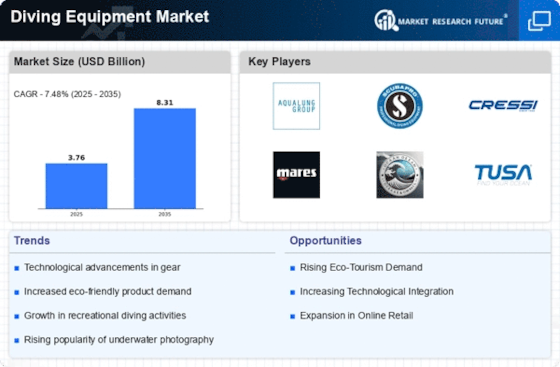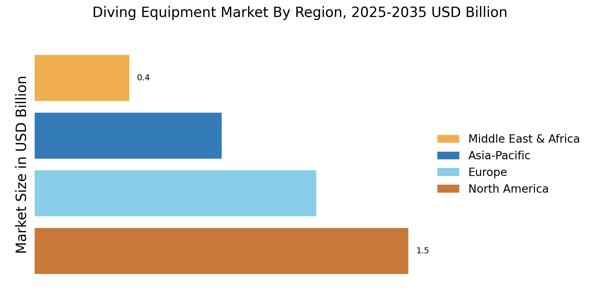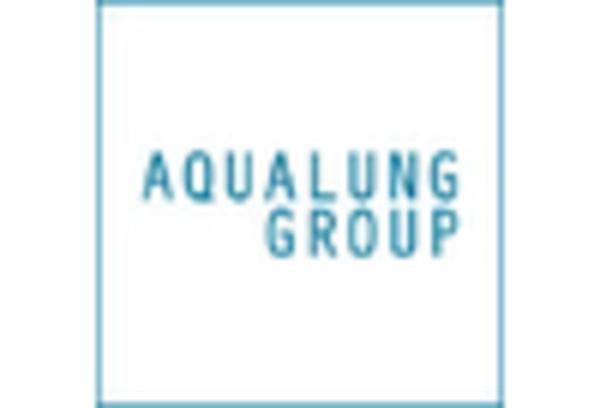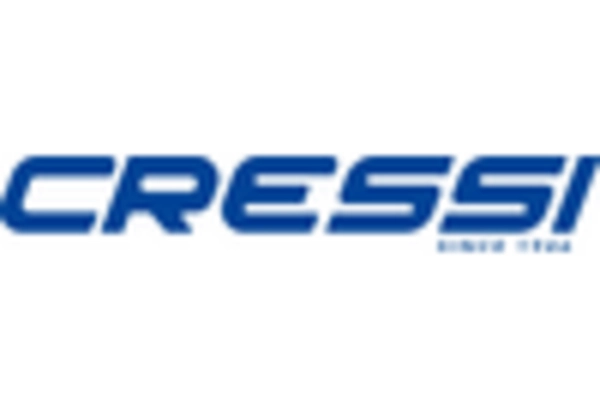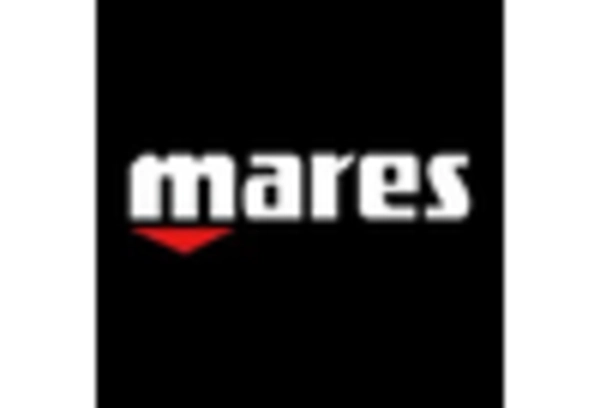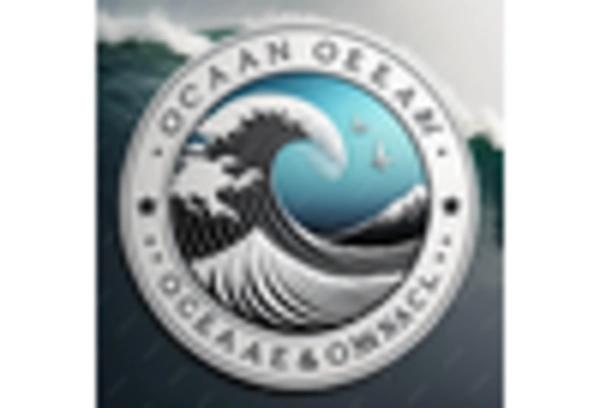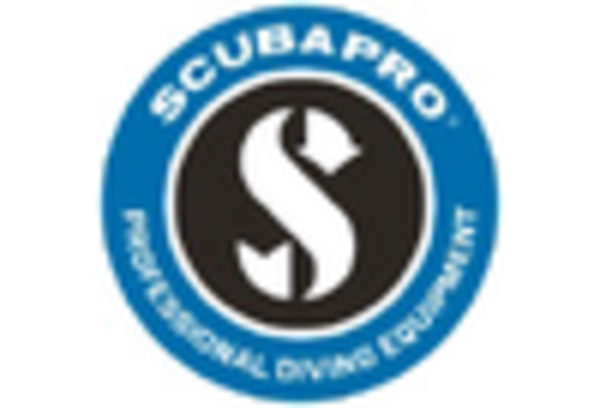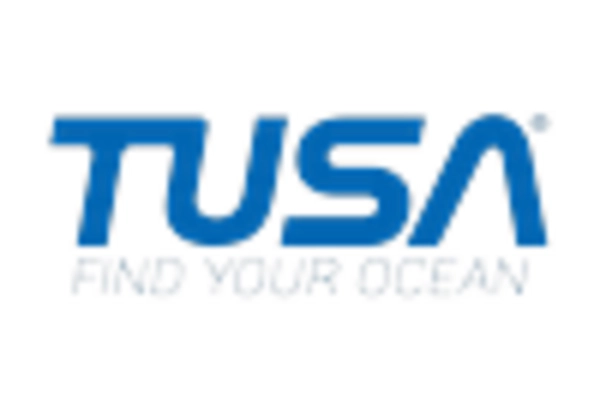Growth of Underwater Tourism
The diving equipment Market is benefiting from the growth of underwater tourism, which has become a significant driver of demand for diving gear. Destinations known for their marine biodiversity are attracting tourists eager to explore underwater ecosystems. This trend is supported by data indicating that underwater tourism is expected to grow by 8% annually, with more resorts and tour operators offering diving packages. As a result, the need for high-quality diving equipment is increasing, as tourists seek reliable and safe gear for their underwater adventures. This growth in underwater tourism is likely to bolster the Diving Equipment Market, creating opportunities for manufacturers to expand their product offerings.
Rising Popularity of Recreational Diving
The Diving Equipment Market is witnessing a notable increase in the popularity of recreational diving activities. As more individuals seek adventure and unique experiences, the demand for diving equipment is expected to rise. Reports indicate that the number of certified divers has increased significantly, with estimates suggesting a growth of approximately 10% annually. This trend is further fueled by the rise of social media, where divers share their experiences, thus inspiring others to take up the sport. Consequently, manufacturers are responding by developing a wider range of products tailored to both novice and experienced divers. This growing interest in recreational diving is likely to drive sales in the Diving Equipment Market.
Technological Innovations in Diving Equipment
The Diving Equipment Market is experiencing a surge in technological innovations that enhance safety and performance. Advanced materials, such as lightweight composites and corrosion-resistant alloys, are increasingly utilized in the manufacturing of diving gear. These innovations not only improve the durability of equipment but also enhance user comfort. For instance, the integration of smart technology in diving watches and dive computers allows divers to monitor their performance in real-time, thereby increasing safety. According to recent data, the segment of dive computers is projected to grow at a compound annual growth rate of 6.5% over the next five years. This trend indicates a strong consumer preference for high-tech solutions in the Diving Equipment Market.
Environmental Awareness and Sustainable Practices
The Diving Equipment Market is increasingly influenced by environmental awareness and the push for sustainable practices. Consumers are becoming more conscious of the ecological impact of their activities, leading to a demand for eco-friendly diving gear. Manufacturers are responding by developing products made from sustainable materials and implementing environmentally responsible production processes. For example, some companies are now using recycled plastics in their wetsuits and fins. This shift not only appeals to environmentally conscious consumers but also aligns with broader trends in sustainability across various industries. As a result, the market for sustainable diving equipment is projected to expand, potentially increasing its share in the Diving Equipment Market.
Increased Investment in Diving Training and Education
The Diving Equipment Market is experiencing growth due to increased investment in diving training and education programs. As more individuals seek to become certified divers, training organizations are expanding their offerings to include a variety of courses. This trend is reflected in the rising number of diving schools and training centers, which have increased by approximately 15% in recent years. Enhanced training programs not only improve safety but also encourage more people to engage in diving activities. Consequently, this influx of new divers is expected to drive demand for diving equipment, as newly certified divers will require gear to participate in their newfound passion. This investment in education is likely to have a lasting impact on the Diving Equipment Market.


